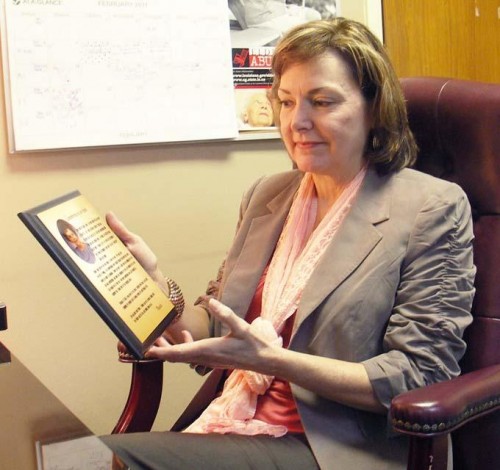March 15-April 15: 13th annual Jubilee Festival of the Arts (Thibodaux)
March 1, 2011
Elder abuse … old enough to know better
March 3, 2011People of good will often hear the advice, “Don’t just sit there; do something!” We could apply this to the many social ills we face today – war, suppression of human rights, world hunger, poverty, and many diseases that people die of every day.
For example, more than 800 million people go to bed hungry every day; 300 million are children. Of these 300 million children, only 8 percent are victims of famine or other emergencies. More than 90 percent are suffering long-term malnourishment and food deficiency.
However, “just doing something” can often be detrimental. Some actions that we take worsen the plight of those who hunger and suffer from abject poverty. USAID supplies grains to Nicaragua, which they sell at a very low price. However, Nicaraguan farmers cannot compete with these prices so many of them are losing their small farms.
If we want to help those struggling with hunger and poverty, it is not enough just “to do something,” we must engage in “actions that empower.” We must help people to be the subjects of their own lives rather than the objects of our charity.
Very often our hearts go out to those suffering around the world. We want to do something to meet their needs. So we write a check, or give people things we no longer need or want. Without losing our compassion and generosity, we need to ask if our actions are doing more harm than good.
When we talk about “empowerment,” we are talking about helping others to take ownership of their lives, to have some degree of self-sufficiency. As one definition states, “Empowerment is not just helping; it’s a long process that seeks permanent change. To empower people is to help them become independent of our charity; to become self-reliant so that they can sustain their own development without our help.”
This is the same principle that parents should follow in raising their children. They should empower them to be self-reliant and take responsibly for their own lives. Not to do this would cripple them and keep them in dependent state.
The recent uprisings in the Arab world cry out for the freedom to earn living wages, to have the opportunity to obtain a good education, to learn skills to meet basic needs, and have a voice in decisions that affect their lives. If we want to do something significant about hunger or other social ills, our actions must affect the systems that are creating these ills, whether they are economic, educational or political.
Two particular actions that can empower others are the fair trade buying and selling of goods, and investment in small lending institutions. Fair Trade dealers must abide by several principles that recognize the dignity of the producer and gives the manufacturer an equal advantage with the dealer:
Producers must receive a fair price for their products – a living wage. They must never allow forced or child labor. Producers must have assess and assistance in upgrading their products. Working conditions should always be healthy and safe with equal employment opportunities for all.
We can compare actions that empower with the slogan, “Teach people to fish rather than giving them fish to eat.” Carrying the analogy a bit further, not only do people have to know how to fish to be the subject of their own lives, they also must have access to the fresh water, and can purchase adequate fishing equipment, etc.
One great benefit of being American citizens in a strong democracy is that we have the opportunity to influence public policy. We can take action on legislation dealing with hunger and poverty, both nationally and globally.
If we really want to help others, we must take Actions That Empower.




